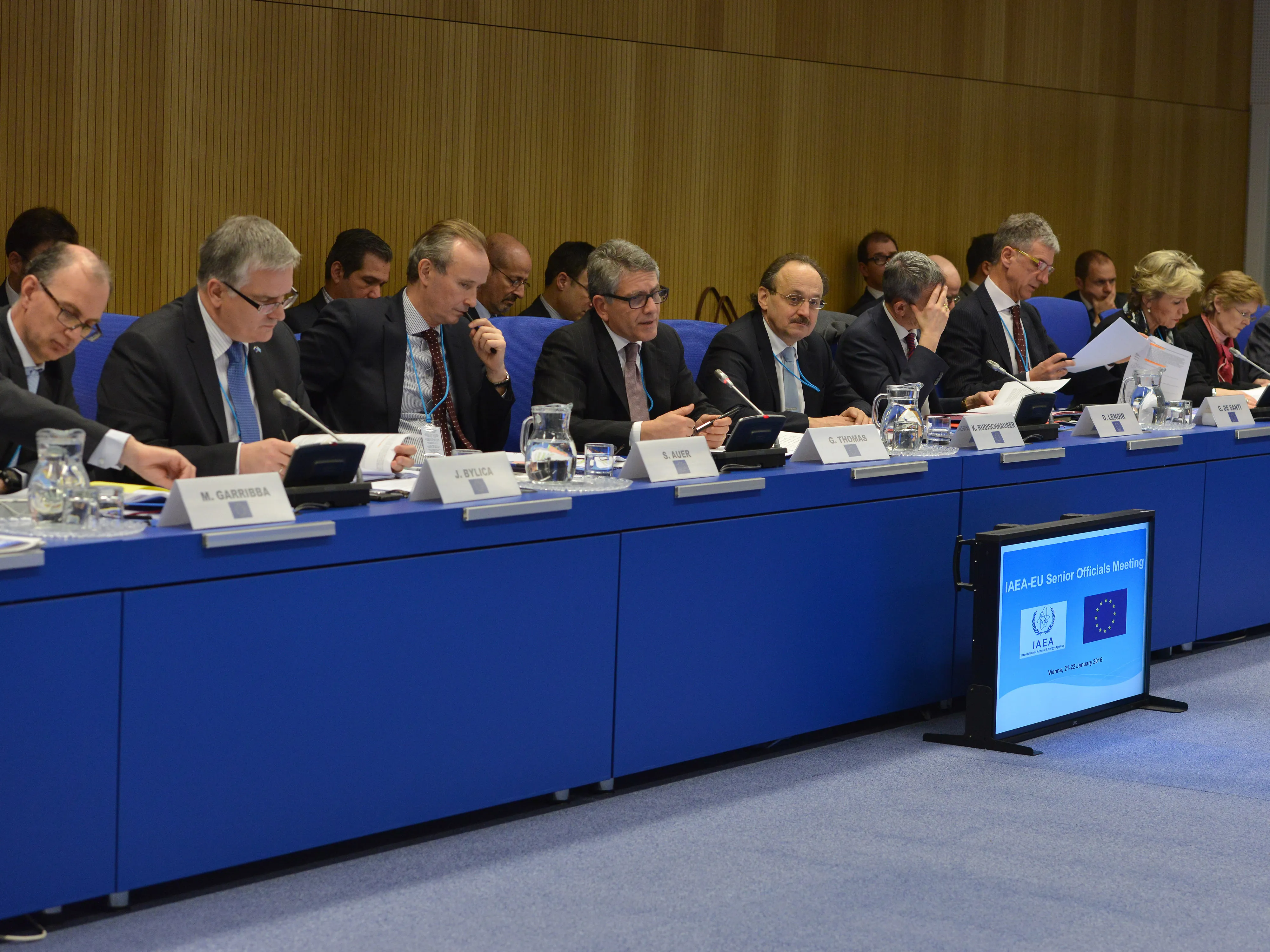The cooperation with European institutions started in 2003, when the European Community and the United Nations signed a Financial and Administrative Framework Agreement. In 2004, the IAEA and the European Community signed a contribution agreement to support IAEA Nuclear Security Programme activities and in 2005 the IAEA and the European Commission signed the first Contribution Agreement for a project in the field of nuclear safety.
Since then, the Agency and the EU have worked together on projects to address the development needs of IAEA Member States in the field of nuclear safety and to strengthen nuclear security worldwide. Nuclear safety projects address areas such as radiation protection, safe management of radioactive waste, environmental remediation, decommissioning, nuclear safety culture and emergency preparedness and response. Current projects on nuclear security include support to capacity building in areas such as needs assessment, computer security, nuclear security detection architecture, transport security, forensics and education and training, nuclear security assistance to Ukraine and support to the Marie Sklodowska Curie Fellowship Programme.
In 2013, the IAEA and the European Commission affirmed their cooperation in a Memorandum of Understanding (MoU) on cooperation in the area of nuclear safety, which was extended in 2017 and renewed in 2021 for an additional period of 18 months. This MoU outlines the partners’ intent to further strengthen cooperation, particularly in education and training, research and development, and capacity building. Cooperation carried out under the MoU enables the IAEA and the European Commission to work more effectively to enhance global nuclear and radiation safety. In 2022, the IAEA and the European Commission signed an updated MoU to expand the scope of cooperation and include new areas of cooperation, in the fields of innovative reactors and SMR Technology.
Also in 2013, the IAEA and the European Commission signed Practical Arrangements on cooperation on nuclear security technical issues. These arrangements enable information sharing and provide a framework to develop and implement a joint Training Course on Gamma Spectrometry for Material Out of Regulatory Control as part of the IAEA’s Nuclear Security Training and Demonstration Centre (NSTDC) training.
